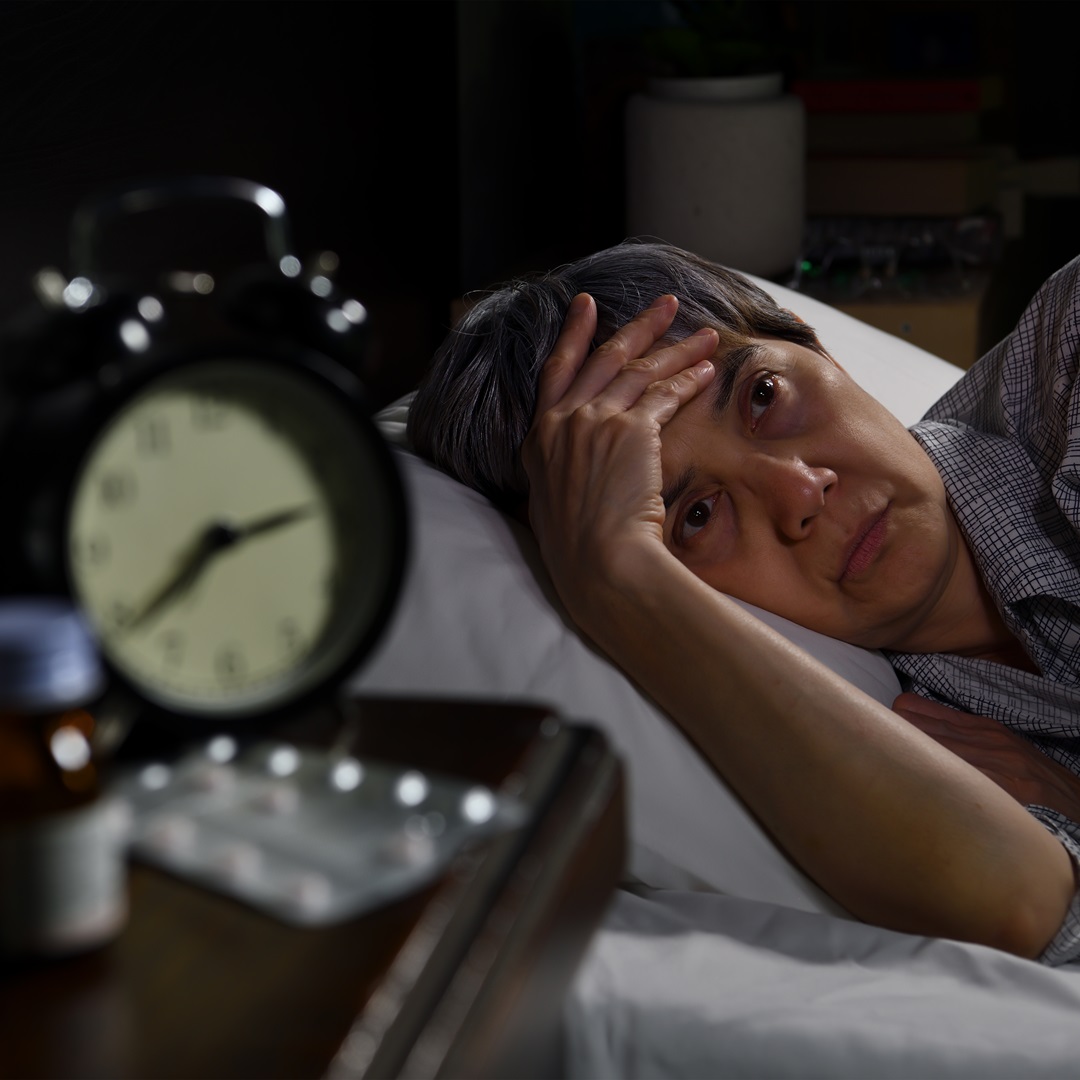by Stephen Luther, M.D.
Share

Insomnia, the persistent struggle to fall asleep or stay asleep, affects millions worldwide, often driving sufferers to seek pharmaceutical solutions. However, a growing body of medical and scientific evidence suggests that for many cases – particularly those not tied to severe underlying conditions – natural lifestyle modifications and supplements can be powerful tools to restore healthy sleep patterns. These approaches target the root causes of sleeplessness, leveraging the body’s own mechanisms to promote rest without the risks of dependency or side effects associated with medications.
Lifestyle Modifications: Realigning the Body and Mind
The foundation of natural insomnia management lies in aligning daily habits with the body’s intrinsic sleep-wake system, known as the circadian rhythm. This internal clock, regulated by the suprachiasmatic nucleus in the hypothalamus, responds to environmental cues like light and temperature. Disruptions to this rhythm – common in modern life – can perpetuate insomnia, but intentional lifestyle changes can help reset it.
- Consistent Sleep Schedule: Going to bed and waking up at the same time every day, even on weekends, reinforces the circadian rhythm. Studies show that irregular sleep patterns increase sleep latency (the time it takes to fall asleep) and reduce sleep efficiency. A fixed routine trains the brain to anticipate rest, boosting the natural buildup of adenosine, a chemical that accumulates during wakefulness and signals sleep pressure.
- Light Exposure Management: Exposure to natural light during the day, particularly in the morning, enhances daytime alertness and strengthens the circadian signal for nighttime sleepiness. Research demonstrates that just 30 minutes of sunlight can increase melatonin production later in the evening. Conversely, minimizing blue light from screens at night – using dim, warm lighting, or blue-light-blocking glasses – prevents the suppression of melatonin, which is critical for sleep onset.
- Pre-Bed Relaxation Rituals: Stress and an overactive mind are common insomnia culprits. Practices like mindfulness meditation or progressive muscle relaxation can lower cortisol levels, the stress hormone that keeps the brain alert. Clinical trials have found that 10-20 minutes of mindfulness before bed can reduce sleep onset time by activating the parasympathetic nervous system, which promotes calm.
- Diet and Exercise Timing: What and when we eat or move can influence sleep quality. Avoiding heavy meals, caffeine, and alcohol close to bedtime prevents disruptions to digestion and neurotransmitter balance. Caffeine, for instance, blocks adenosine receptors, delaying sleep pressure, with effects lasting up to 6-8 hours. Regular moderate exercise, like a 30-minute walk (ideally completed 3-4 hours before bed), has been shown to deepen sleep by increasing slow-wave sleep phases, though intense workouts too late can elevate adrenaline and delay rest.
These adjustments work synergistically to create an environment conducive to sleep, addressing both physiological and psychological triggers of insomnia. For many, they rival the efficacy of sedatives without the grogginess or tolerance buildup.
Natural Supplements: Enhancing Sleep from Within
When lifestyle changes alone aren’t enough, natural supplements can provide a gentle boost, targeting specific biochemical pathways involved in sleep regulation. Unlike prescription drugs, these options typically have milder effects and fewer risks, making them suitable for long-term use in mild to moderate insomnia.
- Melatonin: This hormone, produced by the pineal gland, signals the body that it’s time to sleep. Supplemental melatonin (1-5 mg taken 30-60 minutes before bed) is particularly effective for those with circadian misalignment, such as shift workers or jet-lagged travelers. Studies confirm it reduces sleep latency and improves sleep quality, especially in older adults whose natural melatonin production declines with age.
- Valerian Root: Used for centuries as a sedative herb, valerian increases levels of GABA, a neurotransmitter that quiets neural activity. Research suggests that 300-600 mg of valerian extract taken an hour before bed can shorten the time to fall asleep and enhance sleep depth. While results vary, its calming effect is well-documented, with minimal morning drowsiness.
- Magnesium: This mineral plays a role in over 300 enzymatic reactions, including those that regulate sleep. Magnesium binds to GABA receptors and supports muscle relaxation, countering the tension that often accompanies insomnia. Clinical studies link magnesium deficiency to poor sleep quality, and doses of 200-400 mg (e.g., magnesium glycinate) before bed have been shown to improve sleep duration and reduce nighttime awakenings.
- L-Theanine: Found in green tea, this amino acid promotes relaxation by increasing alpha brain waves, associated with a calm but alert state. At 100-200 mg, L-theanine taken in the evening can ease anxiety-driven insomnia, with research showing it enhances sleep efficiency without sedation.
- Chamomile: Often consumed as tea, chamomile contains apigenin, a compound that binds to benzodiazepine receptors in the brain, exerting a mild sedative effect. Small trials indicate that chamomile extract (270-540 mg) or a cup of tea before bed can improve sleep onset and subjective sleep quality, especially in those with mild anxiety.
These supplements aren’t magic bullets – they work best when paired with lifestyle changes and tailored to individual needs. For instance, melatonin may be less effective for stress-related insomnia, where valerian or L-theanine might shine. Consulting a healthcare provider ensures safe dosing, especially since natural doesn’t always mean risk-free (e.g., valerian can interact with certain medications).
How Symbios Health Can Help
For those struggling with sleep disturbances due to hormonal, chemical, or lifestyle imbalances, Symbios Health offers personalized solutions. Our outstanding medical professionals, lab technicians, and nutritional experts have the power and capability to create tailored plans that address individual needs. Through advanced diagnostics and holistic treatments, we guide our clients toward a healthier lifestyle and better restful sleep.
Symbios Health understands that insomnia is rarely a standalone issue – it often stems from deeper imbalances in the body. By assessing hormone levels, neurotransmitter activity, and dietary factors, we craft evidence-based strategies that go beyond temporary fixes, promoting sustainable well-being.
A Practical Path Forward
To combat insomnia naturally, start with a consistent routine: wake up at 7 a.m., get morning sunlight, and aim for a 10:30 p.m. bedtime. Swap evening screen time for a warm chamomile tea or a 10-minute meditation. Add a supplement like magnesium or melatonin if needed, adjusting based on response. Track progress with a sleep diary – small tweaks can reveal what works best.
For most, this holistic approach offers a sustainable path to restful nights, proving that the simplest solutions, grounded in science, can sometimes outshine the most advanced pills. Sleep, after all, is a natural process – sometimes it just needs a natural nudge.





